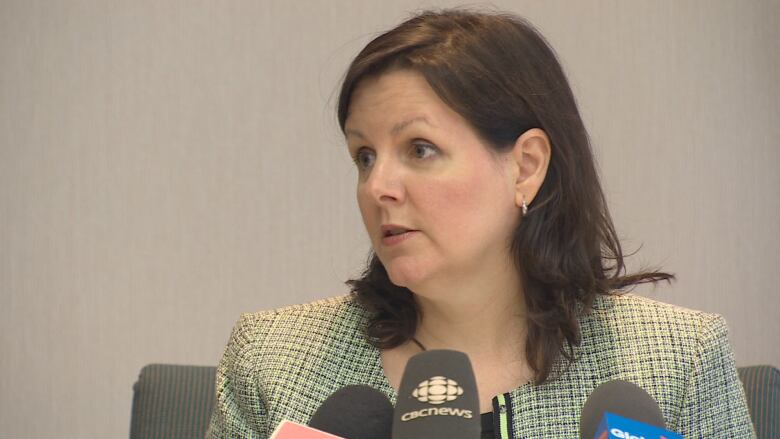Glyphosate report not final word, says N.B. health officer
Despite report, acting Chief Medical Officer of Health 'uncertain' on safety of using Roundup

The glyphosate report released to the public on Friday won't be the last word until Health Canada has weighed in, according to the acting Chief Medical Officer of Health, Dr. Jennifer Russell.
The report on glyphosate uses in New Brunswick began shortly after a branch of the World Health Organization declared glyphosate "probably carcinogenic to humans" in May of 2015.
- The Glyphosate Report
- Critics, industry respond to glyphosate report
- Glyphosate report shows no increased health risk: Dr. Jennifer Russell
"When we contacted Health Canada to find out where they were at with their assessments and find out what we should expect and when we should expect those results from their findings, they said March 2017 so that's what we're waiting for," said Russell on CBC Fredericton's Information Morning.
Glyphosate is a herbicide marketed by the Monsanto corporation, under the trade name of "Roundup" which is used for killing weeds and controlling undergrowth.
The currently released report suggests that while other jurisdictions tend to use the herbicide 90 per cent in agriculture, N.B. uses 60 per cent in its forestry industry with aerial spraying.

She said the report currently released now was never meant to be public, but was made so in the effort to be transparent.
"It was an internal, very technical internal document to provide us with the information that we needed to make decisions about what the risks were for New Brunswickers again, based on usage that currently we are seeing here."
Effects not determined yet
Russell said she had no answer yet what effects other possible compounds regularly mixed with the spray formula could have on humans.
She said the department is waiting on the report Health Canada has promised will be ready by March 2017.

No precautionary measures suggested
Quebec banned the use of glyphosate on their public forests in 2001 to eliminate the use of chemicals, sometimes referred to as a precautionary measure.
"In certain situations where there is scientific uncertainty, it would be something to undertake, to be erring on the side of caution," said Russell.

There have been no precautionary measures against glyphosate taken in New Brunswick as of yet, but Russell says the department will continue to actively monitor the status of the herbicide.
"We're very concerned about this as well and we want to make sure we're doing our very best to make sure that the public health of New Brunswickers is protected."